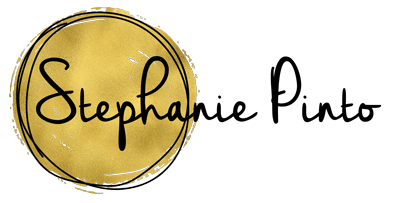I Asked 100,000 Parents, “What Do You Wish You Heard As A Child?” And Here’s What Came Out.
It’s no longer debated that our early experiences shape us, like invisible bricks building our habits and personalities. Even if you’re someone who doesn’t consciously remember much from your childhood (like me!), certain things will have stayed with you—both good memories and moments we wish had been different.
Those seemingly small phrases that we heard many times as a kid virtually became ‘programmed’ into us. And then they start coming out of our own mouths as an adult! On the flip side of this, we all have things we WISH we heard more from our parents, but didn’t.
Last month I asked the question “What do you wish you heard more from your parents growing up?” to my Facebook community of 100,000+ parents. Let’s just say, I got a TONNE of responses. People shared thoughts and experiences, showing how our words and actions as parents really do matter to our kids. Here are some of the big ones:
“I wish I heard…”
"Are you okay?" instead of "You're okay."
This is so common. Parents sometimes unwittingly dismiss their kids' experiences, thinking it's not a big deal. They might say things like, "It doesn't hurt that much," or "It was an accident, you’re okay!" Shifting to "Are you okay?" acknowledges the importance of their feelings and builds the child’s trust in their own emotions.
2. "You are not responsible for my emotions."
This is so huge. Emphasising that a child shouldn't carry the burden of their parent's feelings is so impactful.
3. "I could have handled that differently, and I'm sorry."
Taking ownership and accountability as a parent was rare back then and remains challenging today. Apologising to kids, admitting mistakes, or acknowledging when handling a situation could have been better IS difficult, but important.
4. "I care what you think, and you matter."
Tell your children that their thoughts and feelings matter. Show them that you care about their opinions, even if you don’t accept their choice or suggestion (like lollies for dinner!). Listening to your kids does not make you lose your authority as a parent!
5. "I’m not going anywhere."
Kids draw conclusions about our words and actions, often in error. Their developing brains make it hard for them to understand things about the world and people’s behaviour. Being explicit in saying, "I'm not going anywhere," leaves little room for guesswork, worry and anxiety.
6. "I'm sorry," "I'm proud of you," and "I'm here to listen."
Anyone else would have loved clear, honest communication like this? Me too! Many people find it hard to talk clearly and honestly. Saying sorry and being there for others matters.
7. “I love you no matter what.”
Share with your kids that nothing they do will make their parents love them any less. This constant reassurance, even when mistakes happen, is comforting and meaningful.
8. “I'm proud of you.”
Simple, yet profound. You might be super proud of your child when you think back to how far theyve come and how they’ve grown over even the last year. Don’t keep the “I’m proud of you” comments for when they achieve something big, or get an award. Tell them any day of the week, even if you need to find something small they did to be proud of.
What a list. And guess what the two most commented responses were?
"I'm sorry."
"I believe you."
Surprising, right?
Maybe "I'm sorry" wasn't too unexpected because in our parents' time admitting mistakes wasn't the norm. Apologies were uncomfortable, even shameful. Issues were swept under the rug or ignored and apologies were often actions rather than verbal admissions (anyone remember being asked if you were hungry?! A nonverbal apology!)
And why do so many wish their parents said, "I believe you”?
It might be because kids' feelings were often dismissed and invalidated, with adults thinking we were exaggerating or being dramatic.
Please tell your kids that that their feelings are valid, and that you believe them. Sometimes, we're too busy or think the issue is unimportant, but expressing some understanding and a willingness to work through things together is so powerful!
I know my two kids will wish I did a million things differently. I'll realise I wasn't as perfect as I thought. Deep breath. We are ALL doing the best we can.
Imagine your child at 20 or 30. What would you like them to remember about your words and actions?
I invite you to push through the awkwardness and discomfort and say some of these things to your child or teen. Even if it feels silly to you, your child will appreciate it. It's like speaking their language.
If you loved this as much as I did, keep an eye out for my new podcast! I release new episode every Monday (or Sunday if you’re in the US!); subscribe for free on your favourite podcast app to level up your emotional intelligence in parenting.



